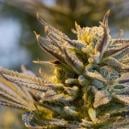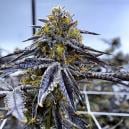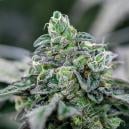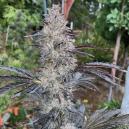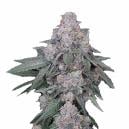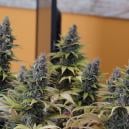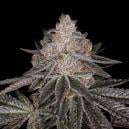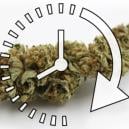Is Cannabis A Viable Treatment Option For Those With Depression?
Published :
Sep 6, 2018
Categories :
Medical cannabis

Many people with depression self-medicate with cannabis to experience relief, and solid science can back up some of these claims. Research has found that cannabinoids THC and CBD can help to reduce the symptoms of depression.
Cannabis is celebrated for its uplifting and even euphoric effects when smoked. These sensations are caused by the psychoactive cannabinoid THC binding to CB1 receptors within the central nervous system. Additionally, many users find relaxation and relief through dosing the non-psychoactive cannabinoid CBD. These compounds are used all around the world to obtain a recreational high and achieve a state of relaxation. It just so happens that they also have vast medicinal potential, with many individuals utilising them to combat symptoms of numerous ailments and diseases.
The euphoric and mood-enhancing effects of cannabinoids make them promising candidates as medicines for those suffering from depression. In fact, scientific research is finding that cannabis could be a future tool used to ease this often debilitating mental condition.
WHAT IS DEPRESSION?
Depression is often associated with feelings of being sad and generally upset, but it is much more than this. Depression is characterised by feelings of persistent and deep sadness that can last for months at a time. Because we rely on a balanced brain chemistry and feelings of motivation to get things done and achieve our dreams, depression can really hit the pause button on a person's life and make them feel stuck.
Depression is of epidemic proportions in the modern era, with major depressive disorder (clinical depression) affecting more than 16.1 million American adults, equating to 6.7% of the entire adult population.
There are numerous types of depression, each with individual characteristics. Major depression usually leads to feelings of depression throughout most of the day or week and is defined by loss of interest and pleasure, fatigue, thoughts of suicide, sleeping issues, and feelings of worthlessness.
Persistent depressive disorder is another recognised form of depression, and is diagnosed if a patient has depression that lasts 2 years or more. Symptoms include low self-esteem, trouble concentrating, feelings of hopelessness, and changes in appetite. Bipolar disorder is another form, often referred to as “manic depression”. This type is characterised by extreme swings between high energy “up” moods and extremely “low” and depressive states.
WHAT CAUSES DEPRESSION?
There is no simple answer to the question of what causes depression. It is an extremely complex condition and can be triggered by a multitude of factors. There are, however, some primary factors that can lead to the onset of the condition. Physical, emotional, or sexual abuse early in life can increase one’s chances of developing clinical depression. Some medications can also bring about the disorder, such as antivirals and corticosteroids. The loss of a loved one is widely known to contribute to depression as well.
Other variables such as genetics, major life events like moving or getting fired, and personal problems such as social isolation can all increase the risk of developing depression. Substance abuse is another large contributing factor, with 30% of all substance abusers suffering from the condition.
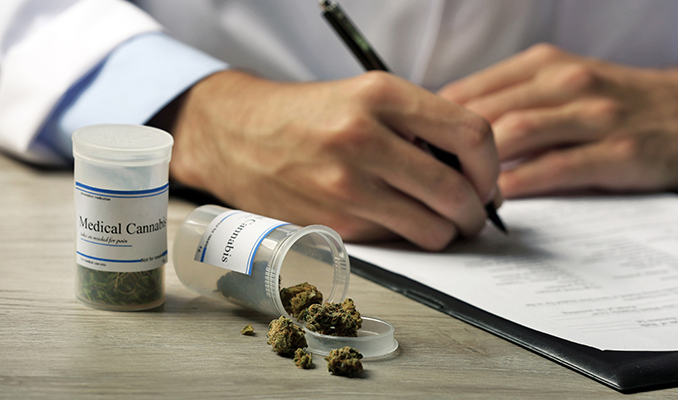
CONVENTIONAL TREATMENTS FOR DEPRESSION
Conventional treatments for depression include medications such as selective serotonin reuptake inhibitors, or SSRIs. These medications work by blocking serotonin receptors so as to keep the neurotransmitter within the synapsis of neurons for longer periods, resulting in elevated mood. Although SSRIs work for some people, they do come with a list of side effects including dizziness, sexual problems, nausea, and drowsiness.
Therapy is also often suggested to patients with depression, particularly cognitive behavioural therapy, or CBT. CBT involves a range of talk therapies based upon the idea that our thoughts, body, and feelings all belong to one interconnected web, and that what happens to one can affect the whole. CBT helps patients identify negative thought and behavioural patterns as they arise, in order to prevent a spiral of negativity from worsening their mental state.
CANNABIS AS A TREATMENT FOR DEPRESSION
Cannabis is well-known for its mood-altering effects. Anybody who has ever been stoned from a strong sativa variety can probably understand why cannabis is being proposed as a possible treatment for the symptoms of depression. Many anecdotes exist of people self-medicating with cannabis to ease or even treat their depression, and various scientific articles exist to support these claims.
Although some patients may rely upon high doses of cannabis extract to treat their depression, researchers have found that even a single puff of a joint is enough to reduce depression. The study, published within the Journal of Affective Disorders, found that cannabis significantly reduced ratings of depression, anxiety, and stress. Specifically, it was found that low-THC/high-CBD strains of the herb performed better at reducing perceived symptoms of depression, whereas high-THC varieties were better at treating symptoms of stress.
However, it was found that long-term cannabis use may exacerbate the symptoms of depression. Cannabis is known to boost dopamine levels in the short-term, yet heavy long-term use is associated with a blunting of the dopamine reward system.
DEPRESSION AND THE ENDOCANNABINOID SYSTEM
Researchers at the University of Buffalo’s Research Institute on Addictions have studied chronic stress and depression with an emphasis on endocannabinoids. The researchers found that chronic stress reduced the production of endocannabinoids within animal models.
Endocannabinoids are substances generated within the body that influence the endocannabinoid system, a widespread metasystem within the body that regulates many other physiological systems. Deficiencies in these endocannabinoids have been theorised to be responsible for numerous diseases and disorders, with depression possibly being one of them. The researchers state that chronic stress is a major cause of depression in people, and that using cannabinoids derived from cannabis may help to restore proper endocannabinoid function.














